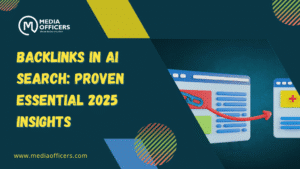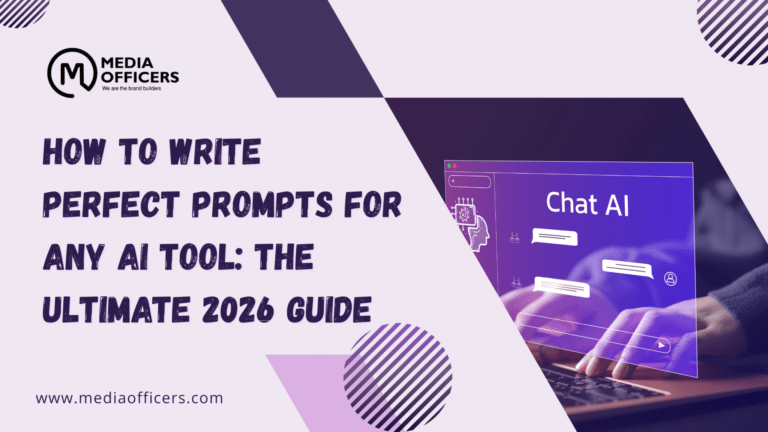Backlinks in AI Search have emerged as a pivotal signal that shapes how AI models source information and craft responses. In a world where AI-driven answers hinge on trusted data, the quality and authority of links can tilt visibility and accuracy in seconds. This is not just about popularity; it is about trust signals that AI systems use to verify sources and guide responses.
In a comprehensive study analyzing 1,000 domains, researchers tracked how backlinks influence AI-generated answers across a spectrum of queries. The verdict is clear: quality and authority drive visibility in AI search, more than sheer link volume. The study highlights that not all links are created equal, and AI systems appear to reward relevance and expertise more than raw counts. The implications reach beyond rankings and into the very confidence users place in AI-sourced information.
What the 1,000-Domain Study Actually Found
Across industries, Backlinks in AI Search were observed to correlate with better alignment between AI responses and credible sources. The study notes that when a domain carries strong editorial standards and a proven track record, its links become high-confidence signals for AI algorithms. This translates into higher likelihood that AI-generated answers cite those sources accurately and with verifiable context.
In practical terms, the major takeaway is that quality and authority trump quantity. A single robust backlink from a trusted publisher can outperform a dozen insignificant links. As a result, teams focusing on backlink strategy should prioritize source credibility and topical relevance to maximize the impact on AI search visibility. Backlinks in AI Search thus act as a reliability beacon for both AI systems and human readers.
Quality vs. Quantity: The New Lens on Backlinks in AI Search
The old rule of thumb quantity equals power is outdated in the AI era. The study shows that a handful of high-quality citations from respected outlets have disproportionate influence on how AI systems frame an answer. When those sources demonstrate authority around a topic, AI search results reflect that trust in the same way a human expert would attribute weight to credible references.
- Editorial quality and originality of the linking page.
- URL-level relevance to the target topic.
- Stability and longevity of the linking domain.
- Contextual placement within the content where the link appears.
To capitalize on Backlinks in AI Search, marketers should design campaigns that earn visibility through meaningful, topic-aligned references rather than chasing sheer link counts. The AI attention economy rewards precision, not just volume, and this shifts how success is measured in SEO and content marketing.
From Links to Confidence: How AI Evaluates Backlinks in AI Search
When an AI system compiles an answer, it weighs link quality and domain authority more than raw link counts. The study notes that AI models favor sources with transparent authorship, clear publication dates, and a track record of accuracy. This means that Backlinks in AI Search can elevate trust in the response when the links point to high-quality, verifiable sources.
For content creators, this implies that earning links from authoritative domains is not a vanity metric but a practical path to more reliable AI amplification. The AI learning loop tends to reward sources that demonstrate consistency, expertise, and editorial rigor. When your content earns those signals, Backlinks in AI Search help your material become a trusted reference in AI answers.
Practical Tactics for Building Effective Backlinks in AI Search
If you want to improve Backlinks in AI Search, start with content that earns genuine attention from authoritative editors and researchers. The following tactics are designed to align with how AI crawlers and evaluators interpret links.
- Develop cornerstone content that solves real problems and cites primary sources.
- Engage in editorial outreach to high-authority domains within your niche.
- Prioritize relevance over volume; seek links that closely match the topic your AI tool is likely to reference.
- Build a diverse set of referring domains, including universities, government portals, and respected trade publications.
- Monitor link health and disavow low-quality or harmful links that could drag down trust signals.
- Invest in author bios and publish bylines that demonstrate expertise, as AI tends to trust authoritative authors.
Beyond outreach, Backlinks in AI Search benefit from structured data, such as schema markup for articles and publications. When search engines can clearly interpret your content, the resulting citations become stronger signals for AI systems to reference in answers.
Measuring the Impact: Metrics that Matter for AI Search
Traditional SEO metrics still matter, but the AI lens emphasizes a few distinctive signals. In the context of Backlinks in AI Search, consider these enduring indicators of impact:
- Domain authority and trust metrics of linking domains.
- Number of unique referring domains, not just total links.
- Contextual relevance and topical alignment of the link location.
- Signal freshness and publication history of the cited content.
- Anchor text quality and how well it reflects the linked resource’s topic.
Additionally, monitor AI-generated answer quality by comparing citations used in the response with the linked sources. When AI outputs align with solid, well-sourced references, the perceived credibility of Backlinks in AI Search rises among users. Regular audits of link profiles help you spot erosion in authority and rebalance your strategy toward stronger signals.
Common Misconceptions About Backlinks in AI Search
- More links always equal more visibility. In AI search, quality beats quantity every time.
- All backlinks are equally valuable. Relevance and trust signals determine impact.
- Only technical SEO matters. Content quality and authoritativeness of sources are essential for AI trust.
- Backlinks are a set-and-forget asset. Ongoing relationship-building and content improvement are crucial for sustained AI visibility.
Understanding these nuances helps prevent misaligned investments. The true power of Backlinks in AI Search comes from dependable sources that AI systems can verify and human readers can trust.
Future Trends: AI Search, Link Signals, and the Market
As AI systems evolve, the rules governing backlink signals will continue to shift. Expect stronger emphasis on dA PA checker , referencing domains, and editorial integrity. Brands that invest in credible, topic-focused content and cultivate relationships with authoritative outlets will see their Backlinks in AI Search translate into more reliable AI-driven answers and better visibility in downstream AI search experiences. We anticipate smarter evaluation of context, meaning AI will favor links that not only prove existence but demonstrate ongoing relevance and accuracy over time.
In practical terms, this means long-term investments in credible partnerships and data-driven content strategies. The payoff is a more robust presence in AI generated results, where readers encounter less misinformation and more trustworthy, well-cited information. By embracing these shifts, you position your content to participate in AI conversations with enduring authority and impact.
Frequently Askeded Questions
Do backlinks still matter in AI search?
Yes. Backlinks still matter in AI search, but the emphasis has shifted toward the quality and relevance of the linking domains. AI models reward trust signals, not merely link counts, so a few high-quality links from reputable sources can outperform many low-quality connections.
How can I improve Backlinks in AI Search?
Focus on earning editorially sound links from authoritative sites. Create in-depth, original content that cites primary sources, engage with industry thought leaders, and pursue affiliations with universities or major publications. Regularly audit links and prioritize relevance to your core topics. Build relationships that yield durable, credible citations over time.
What metrics matter most for AI search visibility?
Key metrics include domain authority of linking domains, the number of unique referring domains, topical relevance, and the freshness of the cited content. Also assess how often AI-generated answers actually cite those sources and whether the links support credible, verifiable claims. A recurring review of your link profile helps maintain the strength of Backlinks in AI Search signals.
Should I disavow harmful backlinks?
Absolutely. If a backlink originates from a low-quality or manipulative site, disavowing it can protect the overall trust signals AI systems rely on. A clean backlink profile reinforces the credibility of Backlinks in AI Search and reduces the risk of AI misinterpretation.
Conclusion
In summary, the findings from the 1,000-domain study align with a simple truth: Backlinks in AI Search matter most when they come from high-quality, authoritative sources. Quality and domain authority drive AI visibility and the trust users place in AI-generated answers. By focusing on editorial excellence, relevance, and durable link relationships, you can position your content for stronger AI-driven recognition and more reliable AI output in 2025 and beyond. The ongoing shift toward trusted sources means that strategic backlink development is not optional but essential for sustainable AI search performance.




